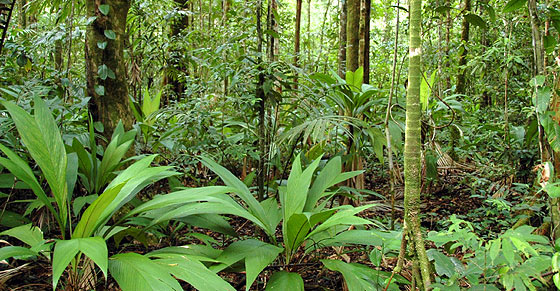Respiration in Action
Soils store carbon, soil organisms release it. Soils store the carbon that plants remove from the atmosphere as a gas and make into solid carbohydrates (food). Whenever the organisms in soils—from burrowers to bacteria—break down an organic (carbon-bearing) molecule to obtain energy, they release carbon dioxide gas back to the atmosphere.
Carbon dioxide is an important greenhouse gas because carbon dioxide can trap infrared radiation (heat) in the Earth’s atmosphere. By breaking down plant and soil organic matter into carbon dioxide—quickly or slowly—soil organisms influence the amount of greenhouse gases in the atmosphere and, as a result, the Earth’s climate.

